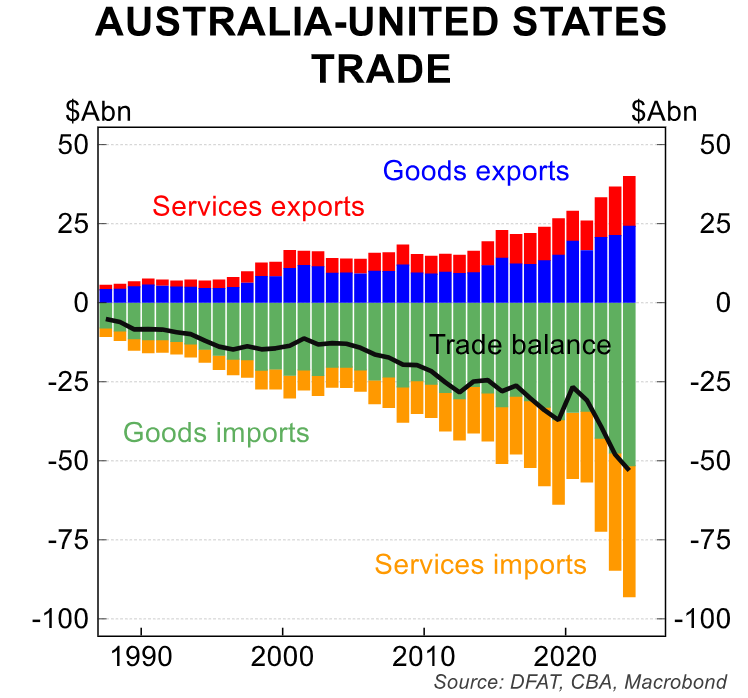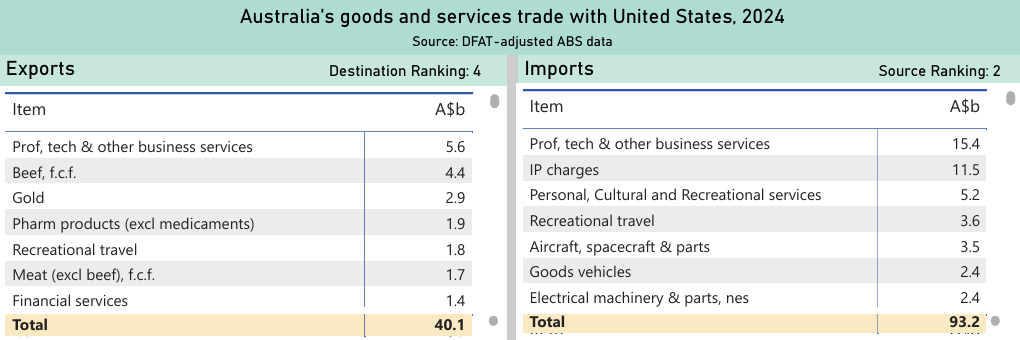The Australia-United States Free Trade Agreement (AUSFTA), which took effect in 2005, was a bad deal for Australia that favoured the United States at our expense.
The Crawford School of Public Policy at the Australian National University (ANU) analysed AUSFTA and discovered that a decade later, the agreement had diverted more trade than it created.
The ANU’s Peter Drysdale claimed that “Australia alone has suffered trade losses [from AUSFTA] the annual equivalent of the current price of around 18 Japanese, German, Swedish or French submarines through this deal”.
The worst aspects of AUSFTA were the increases in patent and copyright terms, which raised the price of drugs and copyrighted products.
Thomas Faunce of ANU assessed that AUSFTA increased the price of the Pharmaceutical Benefits Scheme (PBS), placing a strain on the federal budget.
Peter Martin echoed similar concerns, arguing that AUSFTA
“cost the government $200 million per year by slowing the entry of cheap generic drugs into the pharmaceutical benefits scheme”.
“Generic manufacturers have missed out on an estimated $2 billion over eight years”, Martin said. “70% of drug patents expire later in Australia than in other countries”.
The Pharmaceutical Research and Manufacturers of America (PhRMA) recently called on President Donald Trump to impose ‘punitive’ tariffs on Australia because of its PBS.
The PhRMA stated that the $18 billion PBS, which offers subsidised pharmaceuticals to Australians, reduces US pharmaceutical company earnings and hampers innovation.
It described the PBS as an “egregious and discriminatory” program that reduces prescription prices and stifles American exports.
The PhRMA claims that the Pharmaceutical Benefits Advisory Committee, which advises the Australian government on which prescriptions should be included in the PBS, conducts biased health technology assessments of US firms and that medicines are added to the PBS too slowly.
“PBAC conducts biased health technology assessments that compare innovative medicines to the lowest-cost comparator”, the submission claimed, implying that US companies are penalised.
PhRMA also chastised the PBS for “unreasonable patient access delays,” as the Australian government takes time to assess new pharmaceuticals and determine whether they should obtain a public subsidy to reduce consumer costs.
The formal complaint filed by PhRMA called for decisive action to change “damaging pricing policies” in Australia and other countries in order to boost exports and lower America’s trade deficits.
The following graphic from the CBA illustrates that Australia has a significant trade deficit with the United States, which has widened after the adoption of AUSFTA.

President Donald Trump has threatened to impose a 200% tariff on all imported pharmaceuticals, which are Australia’s fourth-largest export to the US.

“If they have to bring the pharmaceuticals into the country … they’re going to be tariffed at a very, very high rate, like 200%”, President Trump said.
Trump indicated that the proposed new tariff on pharmaceutical products could be imposed by the end of July, suggesting that the tariff will initially be low, before rising to a “very high” level in a year or so.
“We’re going to start off with a low tariff and give the pharmaceutical companies a year or so to build, and then we’re going to make it a very high tariff”, President Trump said on Wednesday.
Thankfully, the federal government has ruled out using the PBS as a ‘bargaining chip’ in tariff negotiations with the Trump administration.
“Our Pharmaceutical Benefits Scheme is not something that we’re willing to trade away or do deals on. That won’t change”, Treasurer Jim Chalmers told Radio National last Wednesday when President Trump first mentioned the 200% tariff.
“We see the PBS as a fundamental part of healthcare in Australia. We’re not willing to compromise the PBS. We’re not willing to negotiate or trade away what is a really important feature of the health system”.
Shadow trade minister Kevin Hogan said that the Coalition will work cooperatively with the government to defend the PBS.
Luke Yeaman, CBA Chief Economist and Head of Global Economic & Markets Research, believes that the US would seek to amend Australia’s biosecurity laws, PBS, and media laws in any revised FTA with Australia that avoids potential higher tariffs than the standard 10% minimum.
The Albanese government should withdraw from AUSFTA. It was always heavily lopsided in favour of the US, and the Trump administration’s unwillingness to adhere to the tariff settings and spirit of the agreement proves that it cannot be trusted on trade policy.
Australia must not cede any further ground on biosecurity, the PBS, or intellectual property for a few measly concessions on beef, steel, aluminium, or pharmaceuticals, which were tariff-free under the original AUSFTA.

